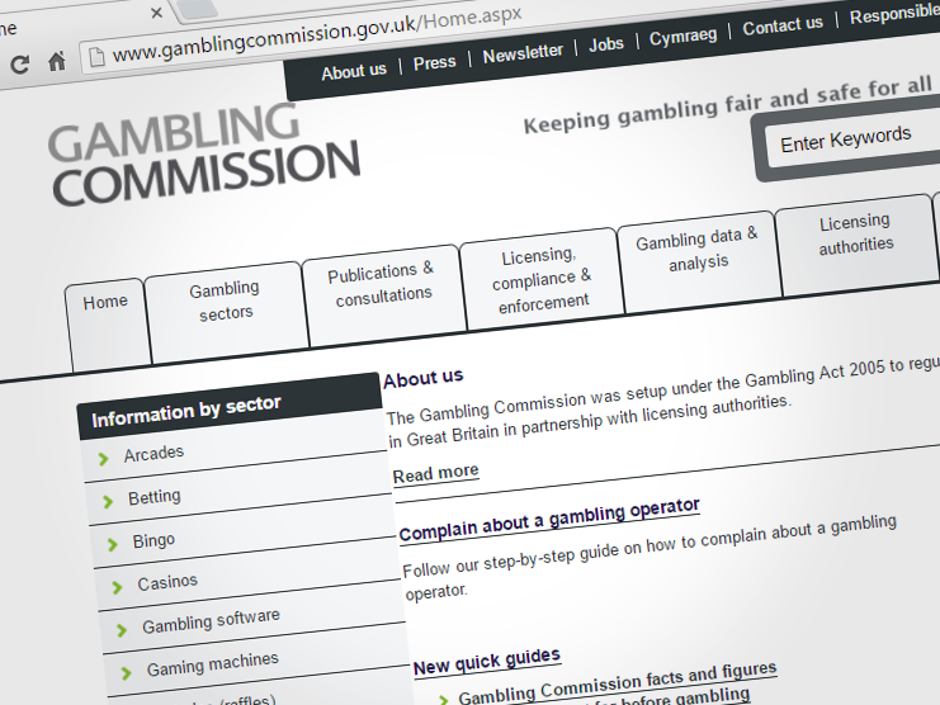As a result of regulation changes, the UK gambling industry is one of the most rapidly growing industries around.
To learn more about the strength of the indigenous U.K. Gaming industry and the benefits to U.S. Companies investing in the U.K., talk to us at GDC 2019, booth S649, visit events.great.gov.uk/gdc. Shares in gambling companies have plunged in value by hundreds of millions of pounds after the industry regulator said it would consider slashing the maximum allowable stake on online casino games.
The UK gambling industry is one of the fastest growing industries in the world. As a result of law liberalisation during Tony Blair’s government, the UK has some of the most relaxed laws around gambling in Europe.

This is due, in part, to the creation of the UK Gambling Commission — the governing body that regulates and develops new legislation in the industry. According to reports, the total revenue for the gambling industry in Great Britain was £14.5 billion — with almost a third of it coming from the remote sector (£5.6 billion).
Despite the rise – and success – of the gambling industry, the market has been impacted through a series of new legislations with tighter regulations. Despite this, the industry as a whole has worked hard to bounce back from new restrictions on the marketplace, and continue to deliver a broad range of entertainment experiences for their growing customer base.
A history of marketplace success and change
The boom of the UK gambling industry can be attributed to the Gambling Act 2005 — which came into force on 1 September 2007. The act overhauled previous UK legislation, which dated from 1845, and covered all forms of gambling, from casinos to arcades.
The Gambling Act 2005 had three main objectives: to prevent gambling from being a source of crime or disorder, or an accessory to crime; to ensure gambling was conducted in a fair fashion; to protect children and other vulnerable individuals from being harmed or exploited by gambling. This led to the inception of the UK Gambling Commission, which continues to oversee all forms of gambling, as well as the companies with gambling establishments and platforms, in the UK.
Another important element of the Gambling Act 2005 was that it addressed the online gambling industry. For the first time ever, online casinos and poker as well as sports betting could be advertised on television. And it also opened the doors for the creation of more regional casinos as well as bigger slot machine payouts — a move that received some criticism from the opposing parties.
The legislation remained relatively unchanged until 2014. This was a response to a two-volume document published in 2012 by the Department for Culture, Media and Sport that evaluated – and critiqued – aspects of 2005’s Gambling Act. One of the main criticisms involved a trend for online operators with a British player base to move their operations to places like the Isle of Man and Gibraltar — thereby incurring a business tax rate as low as one percent.
The 2014 Gambling (Licence and Advertising Bill), which came fully into force on 1 December made a shift to how off-shore gambling brands could operate. No longer would they be taxed at point of supply by their operating territory, but instead at the point of consumption — at a flat rate of 15% on gross profits.
The new legislation also included a change in regulation; where previously, online gambling operators were regulated by the territory from which they obtained their license, from 2014 all gambling operators accessing the UK market must obtain their license from the UK Gambling Commission.
A modification of the 2005 Gambling Act came in the form of advertising. Where off-shore gambling operators could once advertise their products in Britain if they held a license from a whitelisted territory, unlicensed operators would now be forbidden from promoting their products.
Changes from 2018 onward
As the market continues to evolve, the UK Gambling Commission has maintained a watchful eye over the industry and made the regulation changes in order to reflect its three principles. This has involved new legislation in areas including casinos (both online and land-based), bingo and sport.
Here, we discuss some of these changes in legislation and how the industry has bounced back in response.
Casinos and bookmakers
In 2018, news broke of a change to legislation that would see the maximum permitted stake on fixed-odds betting terminals would be cut from £100 to £2. This was to the dismay of high street gaming groups, who believed that the legislation would lead to store closures across the UK.
Many companies have begun offering new games to offset the losses on FOBTs. This includes several roulette-style games that were similar to those FOBTs.

A change to 2005’s point of consumption tax (at 15%) was also revealed. As a way to compensate for some of the losses that it would suffer due to changes in the FOBTs maximum stakes, lawmakers made the decision to increase the tax to 21%.
As well as offsetting some of these losses, the government revealed that the point-of-consumption tax would help provide all online casinos and operators with equal opportunities.
Bingo
Bingo has always been a popular form of gaming. Enjoyed by millions of people around the world, more than 3.8 million people in the UK play the game in bingo halls every year. Like other games in the gambling industry, bingo has both benefited – and suffered – from changes in legislation over the years.
The Gambling Act of 2005 did improve bingo’s status as an industry leader. As a result of the UK Gambling Commission – and their regulations of websites – online bingo platforms, including on mobile, have experienced great success. While changes during 2014 did affect offshore bingo companies, the market hasn’t experienced some of the challenges casinos have faced — like the maximum stake reduction on FOTB’s. Best bingo bonuses and other promotions have ensured the industry remains in a strong position; and will continue to grow in the future.
Sports
Sports betting shops first opened their doors in the UK 1961, after approval from the government’s Betting and Gaming Act. One of the main changes in law since have been the new legislation on FOBT’s.
It remains, however, one of the largest sections of the gambling industry; and with the popularity of live sports, one of the most exciting sectors (and experiences) available.
Into the future
When it comes to gambling, the UK continues to have some of the most liberal laws in the world. With the UK Gambling Commission overseeing – and regulating – the industry, the marketplace will continue to grow.
A UK Gambling Commission report published earlier this year illustrated yet again how the UK gambling industry continues to make gains. The UKGC is the authority in charge of regulating gambling activities in the UK, whether they are land-based or online. The latest report covers the period from October 2016 to November 2017 and includes sections on changes within the sector itself, player behaviour and market trends.
The UKGC updates the public on what is happening within the industry twice a year, which means that everyone can get a good look at what kind of changes have been taking place. This means that both players and operators get a clear picture of how the UK-facing gambling industry is faring.
The data is based on the performance of casinos holding a UKGC license i.e. all casinos who offer their services to UK customers.
Remote Gambling Continues to Grow
For anyone who has followed this sector’s progress over the years, it should come as no surprise that yet another increase was registered in the gross yield collected by gambling operators. The industry as a whole took in a total of £13.9 billion in the time period under study, which puts it at 0.7% higher than the previous year.
The UKGC also revealed that the market share of remote gambling grew by 1% between October 2016 and November 2017, compared to the previous year. With so many operators out there and different options for players, this is hardly unexpected. Online gambling alone took in £4.9 billion in gross yield, which equates to a 3.7% increase over the previous year.
Betting shops fared slightly worse this year. The UKGC reports that the number of betting shops within the territory had dropped by 3.2%, amounting to 8,532 in total. While this is by no means a small amount, it can indicate a trend towards online gambling instead of gambling in purpose-specific establishments.
Uk Gambling Industry Revenues
The number of gaming machines also dropped slightly – there were 0.7% fewer machines, adding up to 183,928 in total across the UK. This number does not include machines that only require a local authority license.

While betting shops faltered, bingo premises experienced a modest improvement. There were 2% more bingo locations in the country than in March 2017, with 649 bingo halls in operation across the UK. Since March 2017, two new land-based casinos commenced operations, bringing the total number of UK casinos up to 152. Arcades saw a slump, with a 3.5% decline. A total of 1,810 licensed arcades are operating in the UK now.
There was a slight drop in the number of people employed in the UK gambling sector, with a 0.8% drop in September 2017 when compared to March 2017. At this time, 106,366 individuals were working within this industry.
Uk Gambling Industry Revenue Commission
The gambling industry in the UK contributes significantly to social causes, mainly through lotteries. These gambling activities help to fund projects and services in areas such as heritage, sport, arts, and charities across the country. The UKGC revealed that there was a small drop in the contributions that large scale lotteries made to social causes, bringing in 1.7% less than in the previous period. This still amounted to £251 million, which made all the difference for the recipients of these donations.